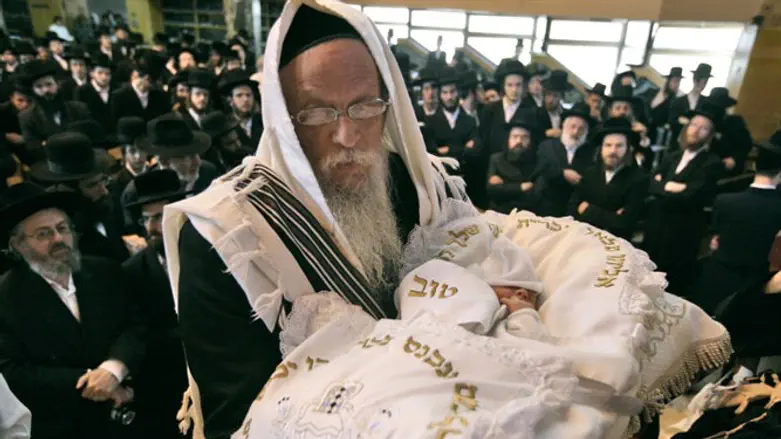
Manitoba’s Jewish community is applauding a move by the Canadian province’s medical regulatory body to withdraw a proposal banning circumcisions outside of medical clinics.
“I’m very happy about the decision,” said Elaine Goldstine, CEO of the Jewish Federation of Winnipeg in an interview with the Canadian Jewish News.
The alteration to the “standards of practice” of the College of Physicians & Surgeons of Manitoba (CPSM) mandating that members only perform circumcisions in a medical clinic or hospital setting had the community worried that the Brit Milah would be reduced from a religious ceremony to a medical procedure.
In June, the college circulated a draft regulation that proposed its members perform circumcisions, along with several other procedures, such as some cosmetic surgeries and laser therapy to remove skin lesions, only in medical clinics or a hospital setting.
However, the Jewish community was not consulted at the time.
While the college said the regulatory change only applied to members, and that non-members could still perform circumcisions outside those settings, Winnipeg’s main mohel is a medical doctor who is a member of the college.
“The mooted change would have the effect of preventing any future Manitoba mohel from performing traditional Jewish circumcisions while maintaining a medical practice, which is standard across Canada,” said B’nai Brith Canada.
When she learned of the proposal, Goldstine contacted the College and sent an email to the Manitoba Jewish community asking for members to explain to the college that “the performance of all ritual Jewish male circumcisions by a physician should be excluded from the Standard.”
The College received a flood of comments from the community.
The College issued a statement on its website on July 16 responding to the concerns, stating that the committee that wrote the new standards had not consulted with the Jewish community and it was appreciative of their input.
“No, the College is not banning male circumcisions, nor is it something we could do,” the statement said. It added that the oversight was accidental.
The College said that the proposal will be amended so as not to “infringe on any human or religious rights and freedoms whatsoever.”
The new standard will minimally provide an exemption for circumcision “performed in a religious ceremony or tradition, particularly respecting low-risk neonatal circumcisions.”
